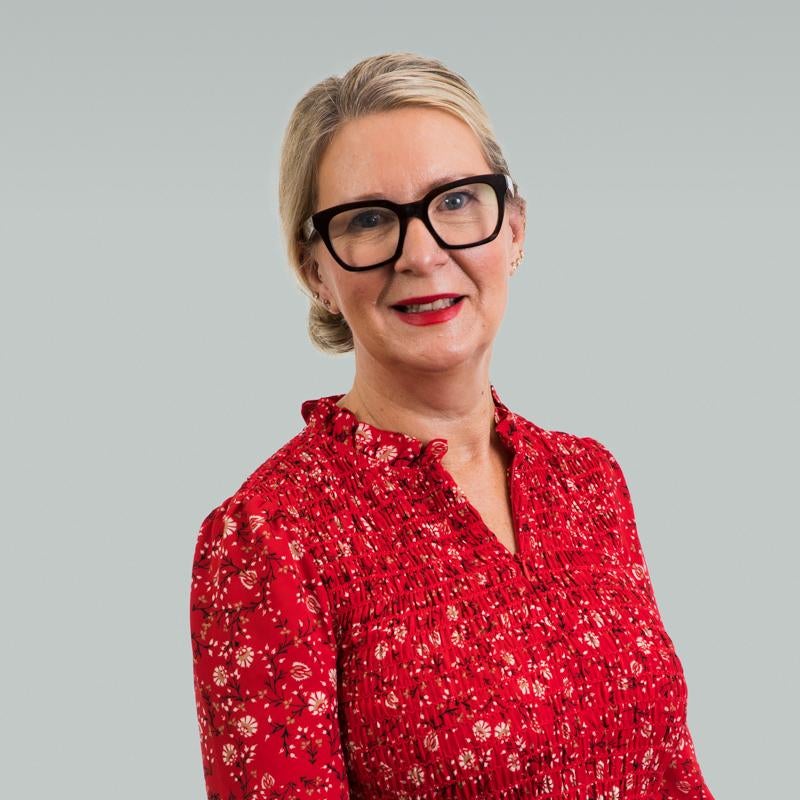To celebrate international youth day, The Accountant and International Accounting Bulletin asks professionals aged under 35 to share their thoughts on the profession: why they qualify as accountants, whether it was challenging and, now that they are in, how they see the profession and where it is going.
Jessica Iennarella
Senior associate at Epps Forensic Consulting.
I have worked as a Forensic Accountant since graduating my Masters of Accountancy in May 2012. In my day-to-day job, I calculate economic damages sustained by businesses, primarily in the context of insurance claims. I have worked on a variety of businesses, including restaurants, hotels, gas stations, camps/event centers, manufacturing concerns and not-for-profits. The economic damages I measure typically stem from physical damage, civil authority or employee dishonesty. I have also assisted with financial asset investigations, estate disputes and employee dishonesty investigations in the process of being litigated. I usually assist with resolving these cases in addition to measuring the damages. My favorite part of my job is reconciling the representations made by individuals with the results shown in the financial statements.
Outside of the office I enjoy volunteering both within the accounting profession and outside of it. Within the profession, I am involved with the Accounting & Reporting Conference Support Committee, the Forensic & Litigation Conference Support Committee and the Emerging Leaders Conference Support Committee through the Arizona Society of CPA’s. My favorite involvement outside of the profession is the work I do with the Arizona Humane Society.
I constantly seek to become more involved in the future of the profession, and I am a graduate of the American Institute of Certified Public Accountants’ 2016 Leadership Academy.
How well do you really know your competitors?
Access the most comprehensive Company Profiles on the market, powered by GlobalData. Save hours of research. Gain competitive edge.

Thank you!
Your download email will arrive shortly
Not ready to buy yet? Download a free sample
We are confident about the unique quality of our Company Profiles. However, we want you to make the most beneficial decision for your business, so we offer a free sample that you can download by submitting the below form
By GlobalDataAlthough it sounds cliché, I have wanted to be part of the accounting profession my entire life. Both of my parents are CPA’s and have had successful, although very different, careers within the profession. However, while I knew I wanted to become a CPA, I did not discover what form that would take until I entered the Master of Accountancy program at Arizona State University in the fall of 2011.
Part of the Master’s program entails an introductory course to Forensic Accounting, which was taught (and still is) by Mr. Joe Epps. I loved the idea of Forensic Accounting immediately. I interviewed and then accepted a position at Mr. Epps’ company, Epps Forensic Consulting, while completing my Master’s.
I qualified to sit for the CPA examination by obtaining both a Bachelor’s and Master’s degree in Accountancy from Arizona State University’s W.P. Carey School of Business. I became a Certified Public Accountant in March 2013. My ultimate career goal at this point was to become a testifying forensic accounting expert. Holding multiple certifications is an important part of demonstrating sufficient knowledge and skills to be considered an expert in a court of law.
Accordingly, in February 2014 I became a Certified Fraud Examiner. I am in the process of obtaining the Certified in Financial Forensics (CFF) certification through the American Institute of Certified Public Accountants.
The road to obtaining my degrees and certifications has certainly had challenges. I opted to sit for the CPA exam while finishing my Master’s degree and working part-time, so personal time was limited for a while. However, I feel very fortunate in that my husband and my family have supported my path. My firm has also provided support, both financially and through time off, as I have pursued the various certifications.
Having been part of the CPA profession for five years now, I see it as more important than when I first joined. The CPA designation carries a reputation for professionalism and trustworthiness that is unparalleled in many other professions. I love helping translate financial concepts into everyday language. It is a role CPA’s are uniquely situated to fill and it is something which is rewarding when done successfully. I am proud to be part of the profession and I am optimistic about its future.
However, as with many other professions, I anticipate future challenges in obtaining and retaining talent within the profession. I think further emphasis should be placed on developing interest in youth prior to their entrance into college, and on educating future professionals in the wide variety of potential careers available to them through the CPA profession.
The biggest challenge I have faced since joining the profession comes from working in a small firm. The majority of the individuals I work with have much more networking and client-development experience than I do, even those who are my peers from a technical standpoint. I have needed more assistance and practice with those skills then is available in-house.
I am very lucky to have bosses with long-term visions regarding my career. They have encouraged and supported my participation in programs designed to develop those skills, such as, the American Institute of Public Accountants’ Leadership Academy and EDGE Conference. I have met other young professionals, especially those working at smaller firms, who have not received a similar level of support for their professional development.
It has been my experience that some bosses do not want to invest in “soft skills” for employees who have not yet mastered the technical skills required for the job. While I understand, there is certainly a cost-benefit relationship to investing in employees. I think waiting to develop young professionals until they are expected to generate new client relationships is waiting too late. There is an advantage to be had by those young professionals being given the opportunity to practice their soft skills like networking and presenting, when they are not yet expected to produce results from such interactions.
The Arizona Society of CPAs is placing an increasing emphasis on connecting with prospective accountants. The society has historically offered scholarships to students entering college with accounting as a declared major. The society also has a Road to the CPA panel which I have been a part of, which travels to different local colleges to offer insight into the CPA designation and the types of jobs available within the profession. In 2017, the society also started a mentoring program to better assist both prospective accountants and young professionals with finding mentors based on their current status and future goals.
I have been excited to see and participate in efforts to increase outreach to prospective accountants at a younger age and in a more engaging way. As the talent shortage becomes more evident and new professions emerge, I think it is very important to educate students on the variety of options available within accounting (i.e. not just tax and audit).
As the profession evolves I believe the greatest threats will come from outside the CPA profession. As artificial intelligence evolves and companies like Alphabet take an interest in services such as bookkeeping and tax assistance, the CPA profession will need to take a proactive step towards reminding clients why CPAs are essential. In my opinion, the best way for CPAs to do that is to provide clients with additional information useful to their decision making, in an easy-to-understand format. By demonstrating an understanding of the information businesses and clients need to make better decisions, and presenting it in a way they can use (i.e. in layman terms), our profession can show how having a CPA involved adds value.
In addition, I anticipate the expansion of services provided by CPAs. Forensic Accounting is not a field exclusion to CPAs. However, my background as a CPA helps me efficiently match information verbally given to me with the information presented in the financial statements. I expect that as technology and information-sharing evolves, the CPA profession will expand matching sets of services.
The millennials will impact the CPA profession by continuing the integration of technology-based solutions. Raised in an era of constant social contact, our generation is routinely encouraged to express ourselves individually and in an open forum. I hope to see us transform those experiences into more open communication with clients, and delivery of more individualized solutions. Further, I believe the increased social exposure has resulted in more social awareness than was easily attainable in prior generations. I hope our generation will use that awareness to make a meaningful contribution to our communities’ financial literacy, and by lending our accounting expertise to help not-for-profits.
I would encourage young CPAs to take control of their own future and be part of the change that is coming! Some of the most gratifying parts of my professional life have been happy accidents, and not always something a boss or peer recommended. You never know where inspiration will come from!





